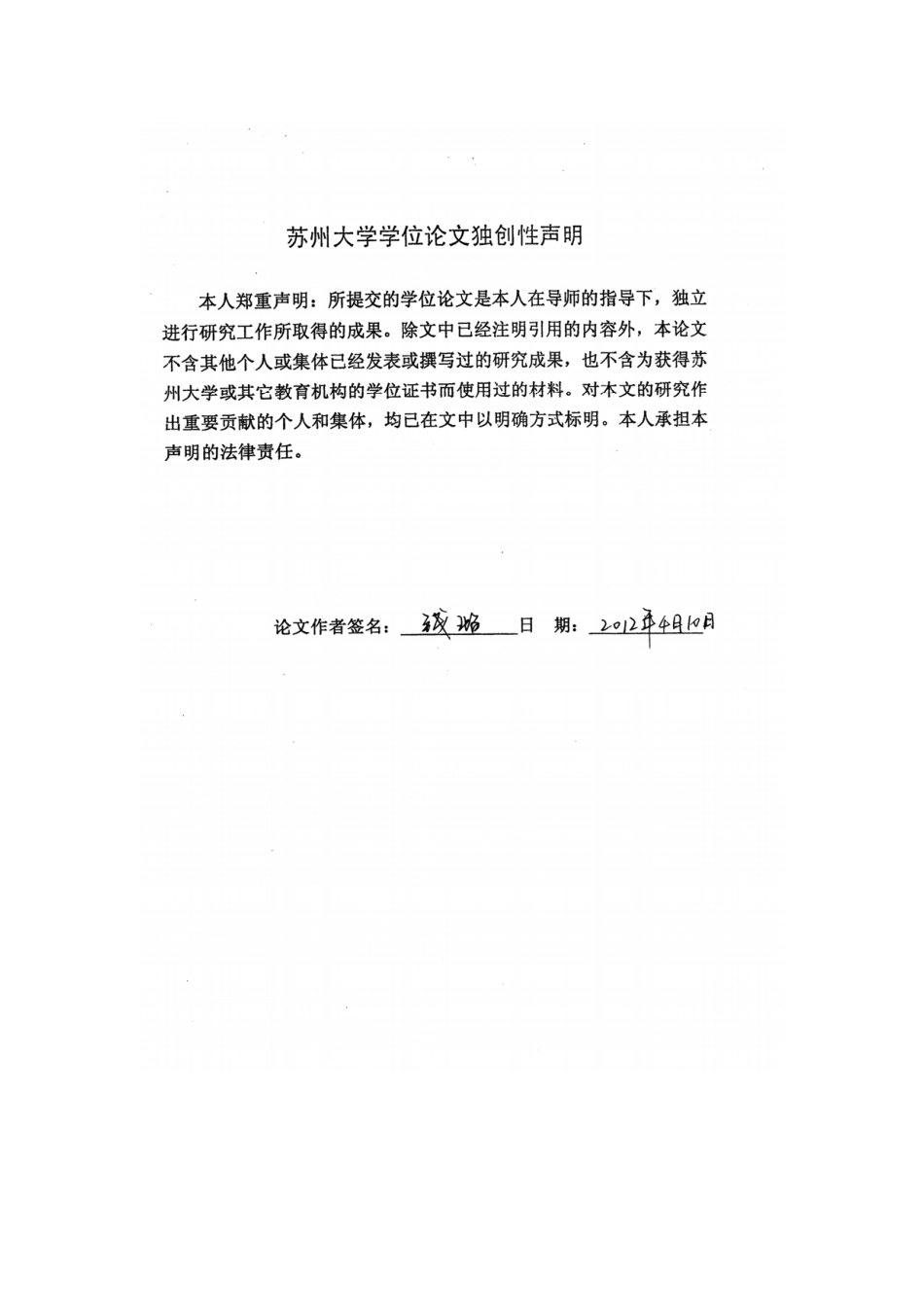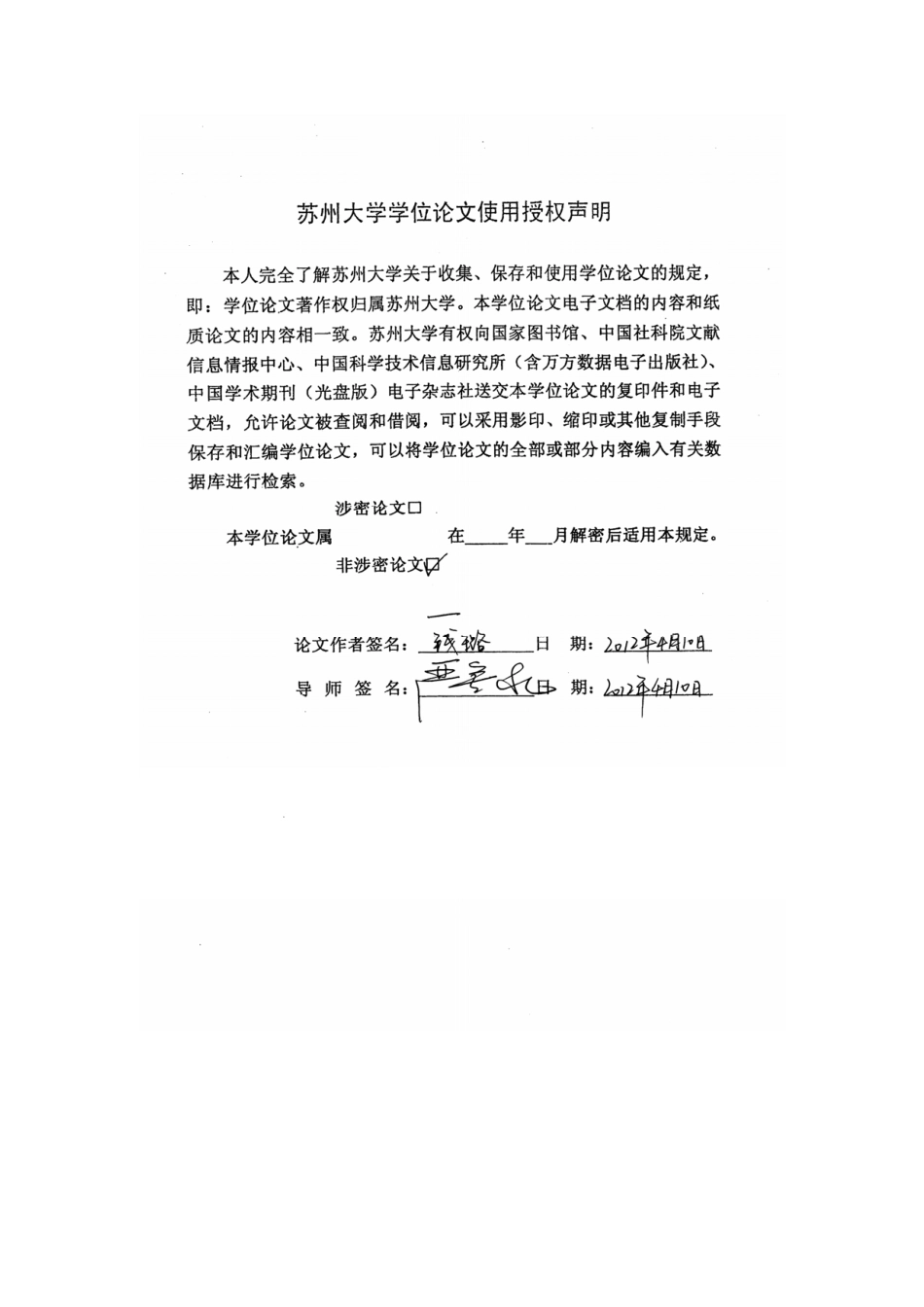I 中文摘要 “公共利益”是我国土地征用制度中的重要概念,一直以来作为土地征收权权行使的正当性和合理性而存在。然而,对于什么是“公共利益”以及如何界定“公共利益”,宪法和法律都没有给出明确答案,同时在实际运用当中也缺乏可操作性。这使得我国土地征收制度中公共利益界定可行性的研究有着很大的理论和现实意义。 本文运用历史分析、比较分析、案例分析等方法,立足中国现代土地制度背景,以公共利益为视角,梳理了公共利益在中国立法中的历史变迁,分析了公共利益概念在中国土地征收制度中的定位和走向。通过解剖公共利益理论,分析公共利益界定在实践操作中遇到的困难,并结合其他国家在实现公共利益做法上的比较,得出在现实背景下的中国,公共利益界定在理论和实践上都有相当大的困难,可行性很低,同时提出一系列针对当前形势的政策建议。 关键词:土地征收,公共利益界定,可行性 作 者:钱 璐 指导老师:严金泉 II The feasibility study of Public interest definition in China's land expropriation system Abstract "Public interests", as an important conception in China's land expropriation system, has always been a concept of justice and rationality in exercising land expropriation rights. However, about what is " public interests" and how to define "public interests", no specific definition is given in the constitution and the law, practice also lacks maneuverability, which makes the feasibility study of public interests definition in land expropriation system have a great theoretical and realistic significance. On the view of public interest, this paper, based on China's modern land system, uses historical methods, comparative methods and case analysis methods to try to solve the problems. The paper mainly includes the following contents: Firstly, the public interest in the land expropriation system is deeply analyzed in the paper, the history and actuality of public interest in China’s land expropriation system is researched. Secondly, the conception of...


